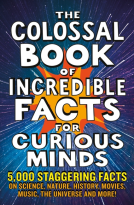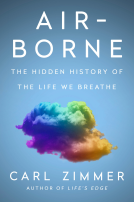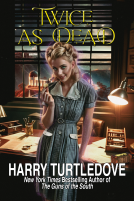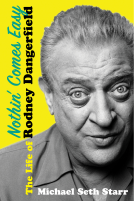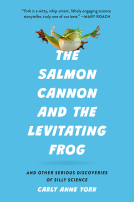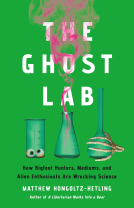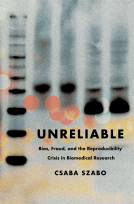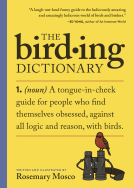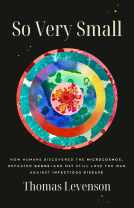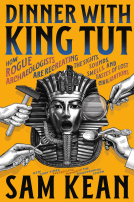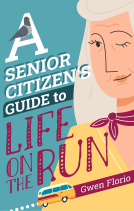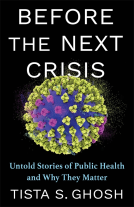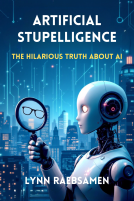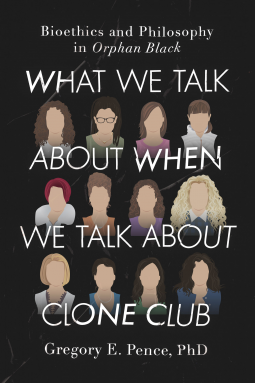
What We Talk About When We Talk About Clone Club
Bioethics and Philosophy in Orphan Black
by Gregory E. Pence
This title was previously available on NetGalley and is now archived.
Send NetGalley books directly to your Kindle or Kindle app
1
To read on a Kindle or Kindle app, please add kindle@netgalley.com as an approved email address to receive files in your Amazon account. Click here for step-by-step instructions.
2
Also find your Kindle email address within your Amazon account, and enter it here.
Pub Date Mar 29 2016 | Archive Date Aug 02 2016
BenBella Books | Smart Pop
Description
What is the real-world history and science of human cloning, and how closely does Orphan Black nail it?
Can you "own" a person—even a cloned one?
How can Sarah Manning be straight, Cosima gay, and Tony trans?
Cult hit sci-fi show Orphan Black doesn’t just entertain—it also raises fascinating questions about human cloning, its ethics, and its impact on personal identity.
In What We Talk About When We Talk About Clone Club: Bioethics and Philosophy in Orphan Black, prominent bioethicist Gregory E. Pence violates Clone Club’s first rule to take us deeper into the show and its connections to the real world, including:
Prominent myths about human clones (and Orphan Black’s rejection of them)
Our ugly history of eugenics
The ethics of human experimentation, by way of Projects Castor and Leda
Clones and identity: What we can learn from twin studies and tensions among Orphan Black's clone "sisters"
Kendall Morgan and other genetic anomalies
The brave new world of genetic enhancement, clonal dynasties, and how Helena and Kira Manning fit in
In the process, What We Talk About When We Talk About Clone Club reveals why Orphan Black is some of today's most engaging and thought-provoking television.
Available Editions
| EDITION | Paperback |
| ISBN | 9781942952343 |
| PRICE | $14.95 (USD) |
Featured Reviews
It’s not about Orphan Black but uses the show as a springboard to discuss cloning
I am a big fan of Orphan Black and I am eagerly waiting for Season 4 to start. However, just because I love the television show doesn’t mean that I would love the book but I did. Author Gregory E. Pence writes in a very casual manner and with humor. He also shows some of himself in the book, helping to create an author-reader bond. He presents the science of cloning very clearly but not a lot; just enough to understand what’s going on. He extensively discusses the ethics and psychology of cloning; much more so than the science. He also refers back to the show to illustrate points. This is great because it gives an almost real-life situation, which makes it much easier to understand the implications of cloning. So this book isn’t so much about the television show; it uses the show to illustrate points about cloning. Pence comes back a couple of times to say how great Tatiana Maslany is in the roles on the show. This could have been tiresome but I completely agree with Pence – Maslany’s acting is brilliant. The only weakness of the book is that because Pence is such a great writer, I would have liked the book to be longer. I would very much like to read more books by him.
Disclosure: I received this book for free via Netgalley in exchange for an honest review.
 Denise M, Reviewer
Denise M, Reviewer
Not only a great book to read prior to the start of the current Orphan Black season but also a great book about the ethical implications of cloning. I learned a lot about genetics, the meaning of different cloning related terms and the current science of genetic testing and cloning. It was an easy to read and still extremely informative book.
 Kelly G, Reviewer
Kelly G, Reviewer
A fascinating look at the science behind ORPHAN BLACK.
“Bioethics is one of today’s most exciting new fields. ORPHAN BLACK is one of the most exciting shows on television. Bioethics explores ethical issues in medicine and science. ORPHAN BLACK dramatizes ethical issues in medicine and science. What could be more appropriate than a marriage of the two?”
Even casual fans of BBC America’s hit television show ORPHAN BLACK have no doubt wondered about the science that drives the plot: How much does the show get right, and where does reality diverge from the fictional world of our favorite sestra orphans? What are the moral and legal implications of cloning? Is it possible to own a person – or a piece of one, in the form of DNA patenting? If the Ledas (and Castors) share the same basic building blocks of life, how could they look, behave, and think so differently? What (if anything) does the creators’ choice to write Cosima as a lesbian, and Tony as a trans man, say about the idea that gender identity and sexual orientations are “lifestyle choices”? (Spoiler alert: it’s not what you think.) How does cloning fit into the history of eugenics, and how does the show acknowledge this connection? WTF is the Castors’ malfunction?
Well, wonder no more. Bioethicist and fellow Clone Club member Gregory E. Pence has got us covered. In WHAT WE TALK ABOUT WHEN WE TALK ABOUT CLONE CLUB: BIOETHICS AND PHILOSOPHY IN ORPHAN BLACK, he examines the science and ethics of the show, giving us a greater understanding of both genetics and bioethics – and our favorite science fiction drama.
So here’s the thing: when I fangirl, I go all the way. Comic books, novelizations, unathorized guides, and (especially) pop culture analyses from an academic perspective. Luckily, these days there’s no shortage of such books, as television, movies, music, and the like have increasingly become legitimate avenues of academic exploration. Smart Pop is by far my favorite publisher of such books; Wiley’s Blackwell Philosophy and Pop Culture Series also comes to mind, though usually they’re a little heavy for me. (Philosophy, not my bag.) I’ve read a ton of Smart Pop’s titles: THE GIRL WHO WAS ON FIRE, INSIDE JOSS’S DOLLHOUSE, THE PSYCHOLOGY OF DEXTER, ALIAS ASSUMED, FINDING SERENITY, SERENITY FOUND, and (my favorite) THE PANEM COMPANION.
My enjoyment of these books seems to hinge on three criteria:
1. Does the author’s (or contributors’) enthusiasm for the show at least match, if not surpass, my own and 1b. Does her or his knowledge of the show put mine to shame? (Because, let’s be honest, they’re the experts here and I want to learn from them!)
2. Is the author able to explain their area of expertise in a way that’s accessible to lay people – while still meeting us on our level?
Pence checks off all the boxes with WWTAWWTACC: he has a firm grasp of the show’s plot, and is also attuned to more obscure details that us non-scientists might miss. For example, it’s rather obvious that Dr. Aldous Leekie’s name is a callback to Aldous Huxley, author of BRAVE NEW WORLD, and paleontologists Louis and Mary Leakey. But did you know that the Cold River Institute is a reference to “North America’s real eugenics headquarters,” located at Cold Spring Harbor on Long Island? Likewise, I never quite made the connection between the STD spread by the Castors and the sterilization of the Ledas – inasmuch as the former is a way of preventing the reproduction of clones (though in a more roundabout – and dare I say sexist? – way than the latter).
Pence is also a loud and proud member of Clone Club, and his excitement over the show – and what it can teach us about science – is infectious. He had me at “sestras”!
In terms of the science, Pence does an excellent job of explaining cloning, genetics, and the biology of reproduction in a way that’s both engaging and (more or less) understandable. I learned some pretty surprising things about genetics. Chief among them: identical twins are more genetically similar than clones, thanks to environmental factors such as “small differences in contributions of mitochondrial genes in the egg that hosts the clone’s nucleus,” “differences in gestation,” and “forces that act on the expression of genes” (phenotype vs. genotype). Thus, while Sarah and Cosima might be 99% identical, genetically, Sarah and Helena are likely an even closer match (given that they’re twins, and have the same mitochondrial genes and were subject to the same forces in utero).
That said, I couldn’t read more than two or three chapters before my eyes started to glaze over and I needed a break. This isn’t a light and breezy read by any stretch of the imagination. Though it is fun as hell – not a compliment I’m quick to dole out to nonfiction books, especially those on the “hard” sciences.
The title’s a wee bit misleading, though; while bioethics forms the core of Pence’s discussion, he touches upon a number of fields, including genetics, biology, history, psychology, sociology, literature, and (more briefly) politics and the law. I feel like he’s at his weakest when he strays away from bioethics; the chapter on DNA patenting proved confusing at times (though, to be fair, this is due in no small part to shifting legal decisions on the matter) and, when talking about the personhood of clones, he relies a little too much on pop psychology to explain stereotypes and fears about clones and cloning.
On this point, Pence claims that people’s fears of/for clones – that they’ll be exploited as weapons, manual labor, sexual slaves, or sources of spare body parts – “tell us less about the future possibilities inherent to the existence of clones than they do about ourselves,” on both an individual and societal level. Put another way: I’m concerned about the potential subjugation of clones because I secretly want my own sixteen-year-old Johnny Depp lookalike boy toy.
To the first point, well, I find it personally offensive. I’m an ethical vegan, so I don’t even morally support the exploitation of nonhuman animals, let alone humans who were created by unconventional means. I relocate bugs when I find them in the house. I think the Cylons were justified in waging war against humanity (and have similar fears for the fate of sentient AIs, should we ever create them). I love watching the apes wreak vengeance against humanity in the Planet of the Apes reboots (and always cry harder over their deaths than those of their human oppressors). In alien invasion films, I typically root for the aliens, since by our own logic, they are mentally/physically/technologically superior to us, and thus totes justified in enslaving and exploiting us. The idea that I worry over how clones will be mistreated because, deep down, I’m a secret wannabe abuser is laughable.
The second point – that our fears are a reflection of society as a whole – Pence dispenses with quickly and rather naively: clones are clearly human people, and the law and society will be quick to recognize and accept this (e.g., “once a human fetus is viable and living outside the womb, it is a person”). Yet this ignores much of human history, in which various differences between groups of people have been cited as justification for their oppression. America was built on the backs of slaves, and though slavery was officially abolished in the US in 1865, it continues around the globe, in various forms, including right here in the good old US of A. Not all “naturally” created people are recognized as people, and it’s naive to take the personhood of clones for granted.
All the legal shenanigans and corporate profiteering that rose from DNA patents (detailed in this very book) hardly gives me faith in humanity and its evil megacorpeoples, okay?
I wasn’t entirely surprised to find myself disagreeing with Pence on some of the moral and ethical issues; I oppose animal testing, and that’s hardly a popular stance with bioethicists. Even so, I sometimes felt like it wasn’t that the chasm was so vast, as much as Pence just wasn’t explaining himself as clearly as he could have.
Additionally, some of the chapters were a little briefer than I would have liked. In particular, Chapter 13 (“Kendall Malone, Chimeras, and Sexual Anomalies at Birth”) seemed way too short given the material. On the opposite end of the spectrum, I LOVED the chapter on Helena, and why we love her (Chapter 19, “Helena, Freud, Henrik, and Foucault”), and Pence’s suggestions for future storylines were fun too (Chapter 20).
Bottom line: WWTAWWTACC is a must read for fans of the show, and would also make an excellent teaching tool for you “cool” educators (Greg Raiewski, I’m looking at you) looking to make genetics and bioethics fun and accessible for high school and college students.
– TABLE OF CONTENTS –
01. ORPHAN BLACK and Bioethics 02. Personhood and Human Clones: The Orphans of Project Leda 03. Our Fears of Clones: And Their Reflections in Literature and Film 04. “These Crippled and Distorted Men”: THE ISLAND OF DR. MOREAU and the Scientists of ORPHAN BLACK 05. “Ipsa Scientia Ptestas Est”: The Scientific Pedigree of Cloning 06. What’s Wrong With the Ledas?
07. The Ethics of Synthetic Biology 08. ORPHAN BLACK and the Ethics of Patenting Human Life 09. “Things Which Have Never Been Done”: Eugenics and Clonal Dynasties 10. Nature, Nurture, and Clonal Identity 11. Are the Ledas Really Genetically Identical?
12. Sexuality, Gender Identity, and ORPHAN BLACK 13. Kendall Malon, Chimeras, and Sexual Anomalies at Birth 14. Would Knowing You Were a Clone Damage Your Sense of Identity?
15. Kant’s Personhood and the Formation of a Clone’s Identity 16. “When Did I Become Us?”: Group Identity as a Leda or as a Castor 17. Stealing and Swapping Identities: Twins and Clones 18. Clones and Free Will 19. Helena, Freud, Henrik, and Foucault 20. Top Five Ideas for Future ORPHAN BLACK Episodes
** Full disclosure: I received a free electronic ARC for review through NetGalley. **
 Reviewer 49131
Reviewer 49131
This was a lot more than I expected from it. It gave a lot of information and science that I wasn't quite expecting. This is a great read for anyone who enjoys Orphan Black, especially since the new season just started!
 Reviewer 93549
Reviewer 93549
What We Talk About When We Talk About Clone Club is a new non-fiction release all about the science and philosophy behind fictional TV series Orphan Black. Just how much of the science is realistic? And what would happen if a ‘Clone Club’ really did exist? This book sets out to answer these questions and many more.
Written by bioethics expert and fan of the show Gregory E Pence, the book explores the topics of bioethics and philosophy, looking specifically at cloning and drawing examples from Orphan Black’s storylines.
Luckily for me, you don’t need to be a scientist yourself to pick up this book. The way the, often complex, ideas are explained is really accessible and whilst there is a lot of information included in the book, Pence manages to make it an engaging and enjoyable read throughout, constantly referring back to relevant examples the show's fans will know well. It can be easy for this type of book to become so heavy on the factual information that the references get lost, so I was particularly impressed by the way Pence neatly linked everything back to Orphan Black.
The book ends with a chapter detailing Pence’s ideas for future storylines on the show, which I thought was a fun way to conclude. Of course I’m now looking forward to finding out whether any of these ideas will actually be explored on the show!
Whether you’re a big fan of Orphan Black or not, What We Talk About When We Talk About Clone Club is an entertaining and thought-provoking read full of fascinating information – definitely one worth picking up!
 Jenn W, Book Trade Professional
Jenn W, Book Trade Professional
I'm addicted to the show Orphan Black: I've even bought the graphic novels that are about Helsinki and the main characters' back stories, from before we meet them.
Seeing science applied and discussed, related to something I enjoy immensely, really brought it alive for me. It became less of an abstract, certainly. Then there was plenty to learn as well, and there's just so much that's great about this book. My interests are all over the place, and here's a book that manages to use all those sources to tackle an incredibly complicated aspect of science and ethics: human cloning.
If you enjoy the show, are interested in the science of cloning (so much more complicated than I thought), how the environment around a gestating mother can influence how genes are expressed (or not), and the history of cloning, where gene therapy is headed and what sort of ethical issues are popping up now and what we might expect in the future. .. this is a book you should definitely pick up. With the news of gene therapy lately, this may help give you some context. It's well-written so most people should understand it without any trouble, and there's other articles and books mentioned if you're interested in learning more.
Of course, if you watch and enjoy the show Orphan Black, the tie ins and references the author makes will be easier to understand and follow, but it isn't a prereq in order to enjoy the book.
As much as I believe I'm a huge fan of this television series, apparently I'm not as geeky as some people. At about 20% into the book I've realized that all the references to other books and movies about cloning humans - none of which I've read or viewed - are tripping me up and causing me to feel I'm not obsessed enough to appreciate the book. Abandoning at 20%.
Readers who liked this book also liked:
Nigel Henbest; Simon Brew; Sarah Tomley; Ken Okona-Mensah; Tom Parfitt; Trevor Davies; Chas Newkey-Burden
Entertainment & Pop Culture, Humor & Satire, Nonfiction (Adult)
